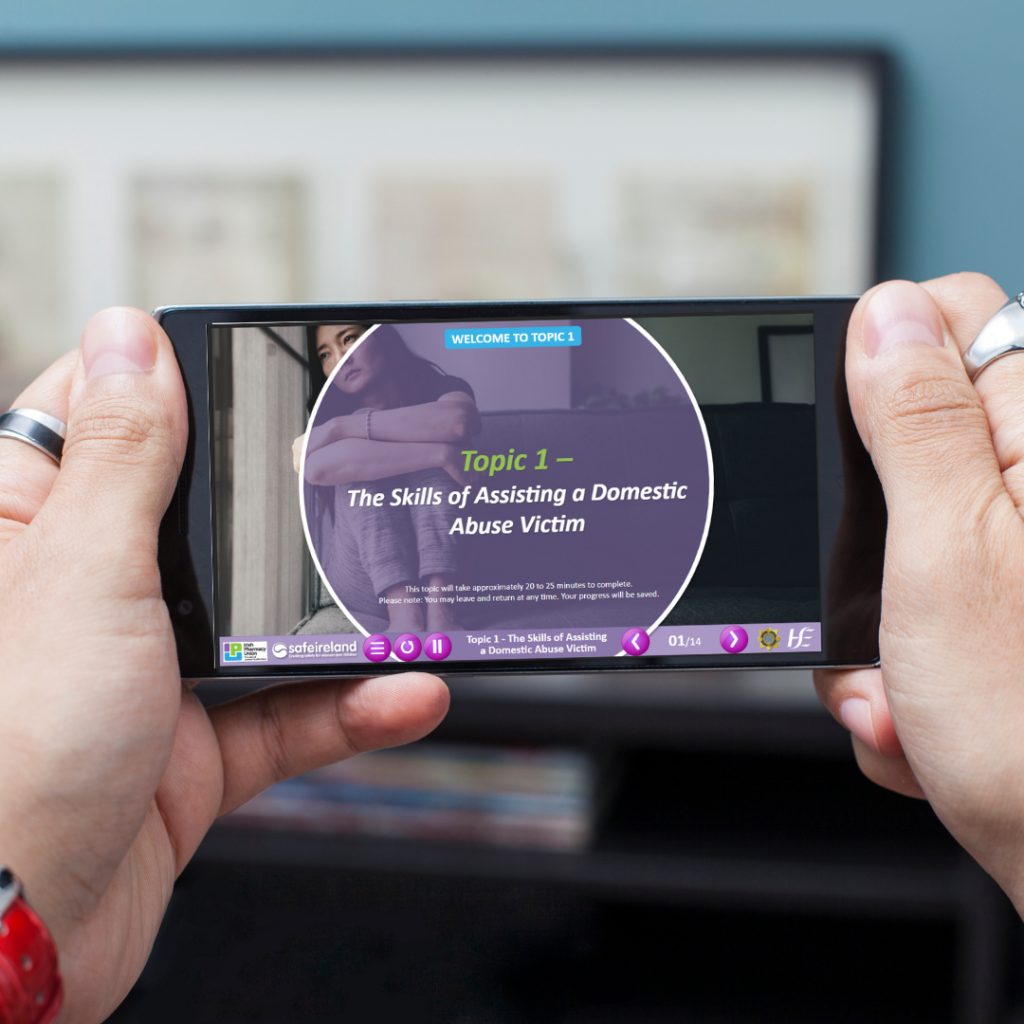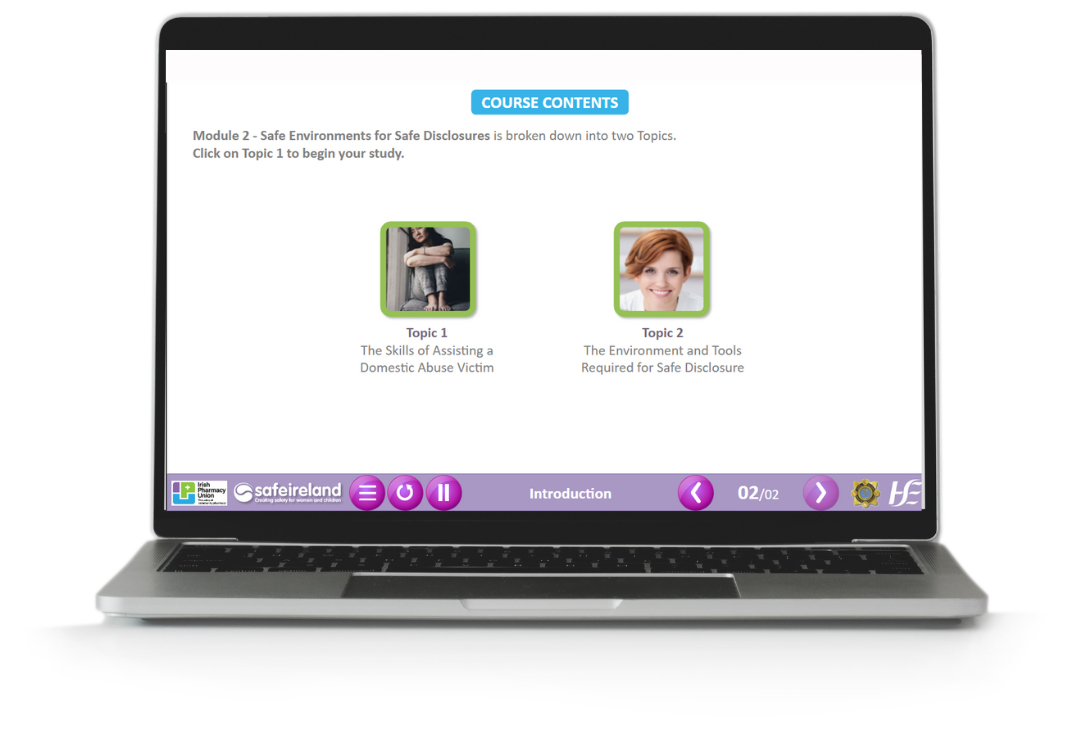Home » Domestic abuse and coercive control
In this month’s CPD article, Susan Madden MSc, Principal of South East College and Director of Education at QedON provides an overview of domestic abuse and coercive control and outlines how pharmacy teams can support people who may disclose abuse in the pharmacy setting. This article also provides information on the new IPU eLearning course entitled Safe Pharmacy, Domestic Abuse and Coercive Control — Creating a Safe Environment for Disclosure, which launches on 1 July, 2023.

Every day 137 women worldwide are killed by a partner or member of their own family. Within an Irish context, one in four women in Ireland who have been in an intimate relationship has been abused by a current or former partner.
A 2014 EU-wide study by the European Union Agency for Fundamental Rights (FRA) reported that:
Traditionally, when the term domestic abuse is used, the vision of a physical injury first comes to mind, maybe a victim with a blackened eye or split lip. But domestic abuse is far more expansive than that. The United Nations define domestic abuse as “a pattern of behaviour in any relationship that is used to gain or maintain power and control over an intimate partner”. An abuser will use a variety of tactics, including physical, sexual, emotional and financial abuse, to maintain control. Forms of domestic abuse can include; physical violence, sexual abuse, emotional abuse, intimidation, economic deprivation and threats of violence.
On 1 January 2019, coercive control was signed into law in Ireland as a criminal offence by Minister Charlie Flanagan TD. In his launch speech, Minister Flanagan said; “One of the key new protections for victims under the criminal law introduced by the Act is the creation of a new offence of coercive control. This is psychological abuse in an intimate relationship that causes fear of violence, or serious alarm or distress that has a substantial adverse impact on a person’s day-to-day activities.”
Coercive control is a persistent pattern of controlling, coercive and threatening behaviour, which can include all, or some forms, of domestic abuse (emotional, physical, financial, sexual, including threats), by a partner or ex-partner. It traps victims in a relationship and makes leaving impossible or dangerous. There are seven recognised physical and psychological impacts of domestic abuse and coercive control on a victim. These are impacts on:
Trauma is caused by anything that is too fast, too much, or too soon for our nervous system to handle. Domestic abuse and coercive control are forms of trauma, the experience of which can harm a victim’s sense of safety, sense of self, and ability to regulate emotions and navigate relationships.
There are a number of barriers that limit the ability of victims to disclose domestic abuse and/or coercive control, and to safely access support services:
People may disclose that they are the victim of domestic abuse and/or coercive control in the community pharmacy setting. They might present specifically to disclose this information, or it may come to light in the course of an interaction with the person. Equally they may have heard about the Safe Pharmacy initiative which aims to help those experiencing domestic abuse and coercive control to access information, contact details and a safe, private space in their local community pharmacy so that they can make contact with specialist support services in their locality.
There is no ‘one-way’ a victim may present themselves and no ‘one-type’ of victim. Victims are from all walks of life and have varying backgrounds, genders, experiences and ages. When a victim discloses their situation, we, as healthcare professionals, need to respond in a personalised way with a non-judgemental attitude, patience, sensitivity,understanding, and, above all, confidentially. The skills needed are:
To support pharmacists and their teams in creating safe environments for disclosure of domestic abuse and coercive control in the community pharmacy setting, and to help in developing the required skills, the IPU is launching an ATHE (Awarding Training & Higher Education; an Ofqual Regulated Educational Awarding Body) endorsed eLearning course entitled Safe Pharmacy, Domestic Abuse and Coercive Control — Creating a Safe Environment for Disclosure on 1 July, 2023. The course has two main modules, which cover a range of different learning objectives:

“When a victim discloses their situation, we, as healthcare professionals, need to respond in a personalised way with a non-judgemental attitude, patience, sensitivity, understanding, and, above all, confidentially.”
The cost to complete this course is fully sponsored by the IPU for all members and their teams who are registered as a Safe Pharmacy.
More information on Safe Pharmacy and how to register for the training course can be found at ipu.ie > Safe Pharmacy > Safe Pharmacy Information. Futher details on the training course, as well as links to register can be found at ipu.ie > Training & CPD > IPU Training.
Susan Madden MSc

Principal of South East College and Director of Education at QedON
Highlighted Articles